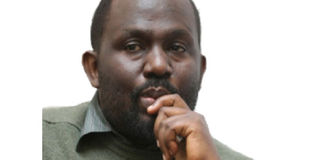25 years ago, The Monitor was born. Drama was unfolding in Uganda

The Monitor newspaper celebrated its 25th birthday on July 24. It would seem to be the perfect time to reflect on media freedom in Uganda, and the legacy of The Monitor, but I shall resist the urge. Only to say that The Monitor has managed to pull off something hardly any other private Ugandan company – and the DP, UPC, and NRM parties – have succeeded in doing.
After 25 years, through both happy and sometimes unpleasurable means, it is the only organisation at that age which is still thriving, and where neither the founders, their children, or spouses still lead it as chief executive, board chair, or powerful shadowy employees. It is probably the country’s best example of transition (business and political) – and it happened within the space of about 15 years. Very unAfrican. Proud to have been part of it.
The Monitor story, however, makes more sense in the bigger political, economic, and geopolitical backdrop of 1992. When the NRM seized power in 1986, in the first few weeks its leaders said it was supposed to be a “transitional” government, and that there was to be a multiparty election in 1990. President Yoweri Museveni said he didn’t plan to be ruling beyond that point!
Clearly that position was offered by the NRM out of weakness.
By 1992, it was sufficiently entrenched. Though it used methods that will one day come back to haunt it, it had defeated the rebellions in Teso; it had routed the Alice Lakwena Holy Spirit Movement; it had prevailed over the DP in the south; and it had sent UPC in disarray.
It had pulled off very controversial (though necessary) economic liberalisation reforms, started privatisation, partially freed the energy market (fuel); dismantled parasitic State enterprises; overhauled the civil service and old police; and had all but completed the most critical phase of post-war reconstruction outside the political north.
It was now confident enough to harden the “broad-based no-party” system into a one-party State, and with the roadmap clear, it pushed ahead on the making of the new constitution, which was just over two years down the road.
The NRM’s biggest headache was, especially Buganda and its demand for the restoration of the kingdoms (Ebyaffe). After dilly-dallying, and a lot of pulling and shoving, by 1992, it became clear that Ebyaffe would come – the only question was the shape of it. The NRM was entrenched yes, but not strong enough yet to say no to the restoration of the kingdoms in some form.
To be clear, the question of the kingdoms was bigger than Buganda or Bunyoro. It was at another level an issue of restitution, the correction of historical injustices, and the cultural conversation that could no longer be postponed.
The Kampala government felt confident enough to deal with it, because on the whole, the geopolitical factors looked very favourable.
The Rwanda Patriotic Front (RPF), which had launched its campaign from Uganda in 1990, had overcome its disastrous early phase that nearly destroyed it. Paul Kagame had taken over the rebel shop and had restored order and hope of some victory.
In Sudan, Uganda’s intervention on the side of the Sudan People’s Liberation Army (SPLA) had stalled the momentum of Khartoum, and forced a stalemate.
Khartoum would support the LRA and all that, but the signs became apparent that it would have to deal.
Not to leave anything to chance, the Museveni government moved to bring new voices that it hoped would not be linked to the old political parties and establishment interests to the fore. And that is how the thinking of freeing the airwaves (radio and TV) started bubbling.
Two years later, Uganda became the first country in Africa to grant independent FM radio licences (the two or so independent radios that existed in Africa then were owned by the church, and broadcast hymns, religious teaching, and updates on God’s news).
Over this period then, Museveni and his people put together a package that turned the 1994-1995 Constitution into a grand Faustian bargain.
The West wanted a settlement in Sudan that gave some power to the SPLA? The international organisations campaigning for women’s rights wanted to entrench them in the Constitution? The Uganda business community and global capital wanted a very free market? The media wanted to do their thing and make money while at it? The monarchists wanted Ebyaffe? You wanted a progress line on land?
Well, they would all have what they wanted, but there was a price - they would have to support the one-party State elements in the 1995 Constitution too.
If you remove the personalities, and particular events, the birth of The Monitor was partly a result of that broader grand bargain. Thus, for many years, internally, we remained sharply divided over the no-party system.
Mr Onyango-Obbo is the publisher of Africa data visualiser Africapedia.com and explainer site
Roguechiefs.com.
Twitter@cobbo3




